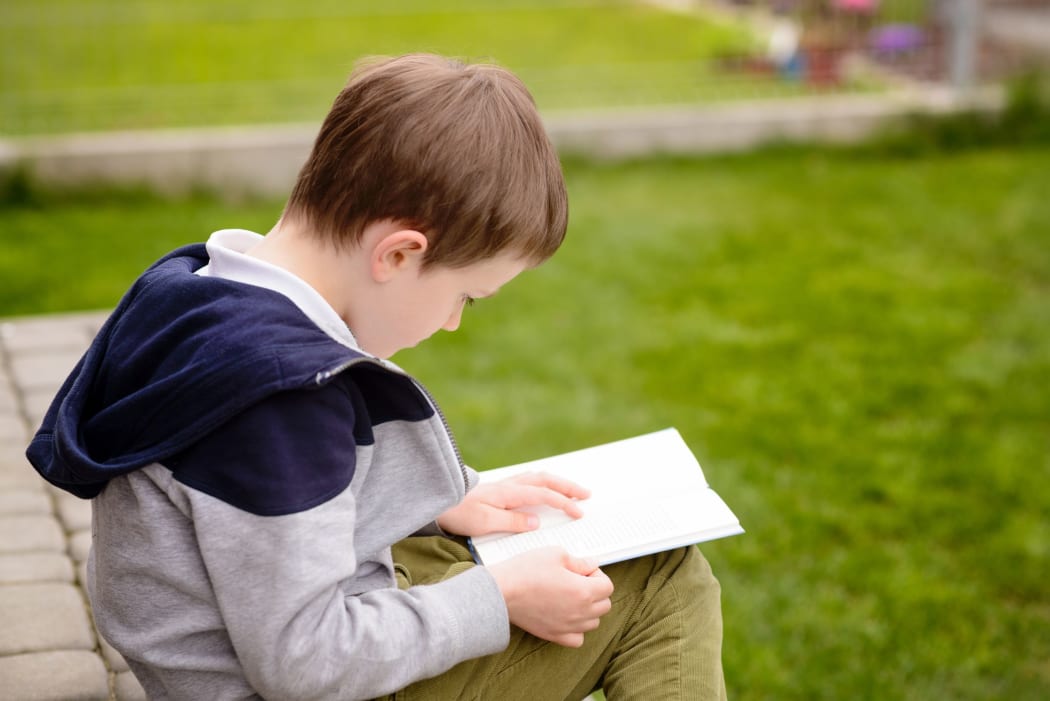Many children who struggle with learning are being let down by classroom teachers who are ill-equipped themselves, according to Australian speech pathologist Pamela Snow.
She says universities are not adequately preparing undergraduate teachers to coach reading to students who have specific learning disabilities.

Photo: 123RF
In New Zealand, 200,000 children need some kind of extra support in learning.
The government has set out a six-year action plan, including more money for learning support co-ordinators in schools and developing new screening tools to help the early identification of learning support needs.
While there are specific learning disabilities, such as dyslexia, there are a whole different range of circumstances that teachers might be confronted with, Snow says, and teacher training needs an upgrade.
“There’s been a slow translation of knowledge that’s been gathered over the last 10-20 years from cognitive psychology, experimental psychology, and neuroscience research [to teacher training].
“That research has found its way slowly and inadequately into teacher pre-service education, such that many of the practices that are routinely used in early-years classrooms are not necessarily reflective of the most recent research about what reading is and how children learn to read.”
As a result, there’s a high level of variability among Australian classrooms, she says.
Evidence-based approaches to teaching
Ongoing debate and controversy about the best approach to adopt is one reason for the delay, Snow says.
Learning to read, write and spell are not biologically natural skills – such as talking and listening – so teachers need to be more explicit about teaching children systematically rather than using use 'eclectic' approaches, Snow says.
“There’s too much eclecticism in how pre-service teachers are taught about what the reading process is and how to go about teaching children how to read.
“There are certain approaches that probabilistically are more likely to get more children across the bridge in the first year of school, than other more eclectic approaches to early reading instruction which certainly work for some children.
“That’s part of the problem, I think, that those more eclectic so-called balanced literacy approaches do work for some children.”
Professor Snow's research on children from disadvantaged backgrounds and those in the youth justice and out of home care show they are "on the tail of the curve in terms of reading success” with these eclectic approaches.
But the education sector, in general, seems reluctant to adopt evidence-based methods.
“There’s more of a ‘choose your own adventure’ approach. So individual teachers, individual schools, can say we choose to do it ‘this’ way and that’s unfortunate when the research evidence suggests there’s probably better ways of doing it ‘that’ way.”
“Some of the teaching practices that are recommended, as a result of what I would consider to be the best evidence we have at this point in time, don’t necessarily align with the zeitgeist about teaching or the fashions of the day.
“Education has had a tendency over the years, unfortunately, to be pro into fads and fashions rather than holding a line and adhering to rigorous evidence-based practices.”
What skillsets for early-year teachers need strengthening?
Teachers need the knowledge base to be able to spot a problem, then work out what it might be and how to intervene, Snow says.
Yet a large body of international research, including a lot of done in Australia, shows teachers typically haven't been given the linguistic knowledge to understand the drivers of learning how to read.
There are two core components to reading – the ability to decode the text (recognise that what’s scribbled on a page is in fact speech) and the ability to derive meaning from that text, Snow says, and it's the 'decoding' part that teachers aren't always trained to teach explicitly and systematically.
Early intervention is key
Teachers need to be well equipped with diagnostic and screening tools that identify early on the children who are falling behind in literacy, Professor Snow says.
“We know that if you’re a struggling reader, the best time for you to be identified and given appropriate remedial support is in the first year of school. Every year after that it gets harder and harder to make up the lost ground.”
The older the child is, the more likely that teachers will also have to deal with secondary complications of their reading problems – social anxiety, school refusal, shame and embarrassment.
The use of monitoring tools to detect those who struggle also helps conserve intervention services for those who really need them, she says.
“I know of no system that has unlimited intervention services. They are always thin on the ground and need to be used judiciously.”
There are benefits to seeking out external learning support services, but they often require a higher level of intensity, frequency and duration for children to make gains, Professor Snow says.
Professor Snow visits New Zealand this weekend to share evidence-based strategies at the SPELD conference.

